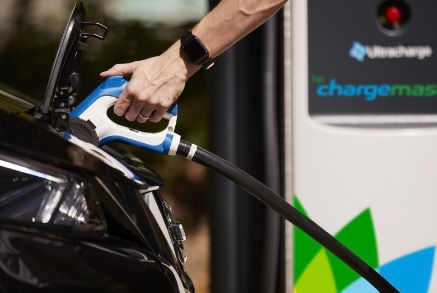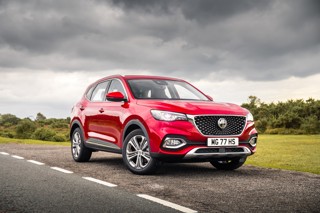Cuts to the Government’s ULEV plug-in car grants have been attacked as “short-sighted” and “frankly bonkers” by industry experts left questioning the move amid a drive to cut emissions by encouraging EV adoption.
The Department for Transport (DfT) confirmed today the news reported by AM on Wednesday (10) – following reports in the Observer newspaper – that plug-in car grant for hybrids will be cut by £1,000 and no longer apply to cars with a zero-emissions range of less than 70 miles, from November 12.
Car buyers looking to invest in a full EV will see their grant entitlement fall from £4,500 to £3,500.
The 22% cut in grant value for the cleanest cars reflected “recent reductions in the price of electric vehicles”, the DfT claimed.
It has also only committed to fund the "next 35,000 of the cleanest vehicles", according to the official announcement, suggesting that rusgh to cash-in on the current ULEV grant rates could prompt and earlier adoption of the cuts.
RAC head of roads policy Nicholas Lyes said: “The reduction of the plug-in car grant is a major blow to anyone hoping to go green with their next vehicle choice and makes little sense when we need to focus our efforts on lowering emissions from vehicles.
“Of particular concern, some popular zero emission capable plug-in hybrid models will lose their plug-in car grant altogether.”
Lyes said that up-front cost was still a huge barrier for those hoping to switch to an electric vehicle – a fact underlined by the recent NFDA Consumer Attitude Survey – before describing the Government’s move as “a big step backwards”.
AM’s sister title, Fleet News, noted that in all, just 19 cars will be eligible for the plug-in car grant, with 20 models no longer qualifying under the new rules.
Quoted in Fleet News, ACFO chairman John Pryor said: “The Government’s decision to reduce financial support for plug-in vehicles is, quite frankly bonkers.
“Demand for plug-in vehicles is already extremely limited and the decision to reduce the amount of financial support available through the Plug-in Car Grant is likely to reduce demand still further.”
Liberal Democrat environment spokesperson Tim Farron, meanwhile, said: “This short-sighted decision from Government is a dagger to the heart of their claims that they are serious about improving air quality.
“Encouraging people to buy cars that are less polluting makes sense and Liberal Democrats demand better for our environment than more Conservative cuts.”
First introduced in 2011, the plug-in car grant (PICG) has provided a discount to the price of more than 160,000 new ultra-low emission vehicles to date.
Up to the end of August, 8,980 pure EVs had been registered, compared with 9,030 in the first eight months of 2018 – a fall of 0.6%.
However, when taken together with other ultra-low emission vehicles (ULEVs), Government figures show that 33,792 cars qualified for the plug-in-car grant during the same period, a 32.6% year-on-year increase.
Last year, 53,203 new ULEVs were registered in the UK, up 27% from 41,837 units in 2016.
However, they accounted for just 1.7% of all new vehicle registrations – up from 1.2% one year previously and 0.9% two years before.
To achieve the Government’s ambition for at least half of new cars to be ULEVs (sub-50g/km CO2) by 2030, registrations would have to rise 30% year-on-year for the next 12 years.
Mitsubishi's Outlander PHEV is one vehicle that will no longer be eligible for the Governments plug-in car grant following the changes.
In a statement issued today, the brand said that there was no question that the grant had "played a crucial role in establishing the EV and plug-in hybrid markets in the UK".
Rob Lindley, managing director at Mitsubishi Motors in the UK described the decision to suddenly end grant support for some of the greenest vehicles on the road as "extremely disappointing".
But he added: "As segment leader for the past four years, we are confident despite the setback that people will still see the benefits of having a 220PS, all-wheel drive SUV that is also so efficient it attracts low VED, low Benefit in Kind rates for business users and offers huge real-world fuel cost savings compared to conventional petrol- and diesel-powered SUVs.”
Commenting on the cuts to the plug-in car grants, Sue Robinson, director of the National Franchised Dealers Association (NFDA), said: “It is extremely disappointing to see that the Government has decided to remove the grants for plug-in hybrids and cut those for electric cars, which, in the short term, can undermine the progress made so far in the development of the low emission vehicles sector.
“Retailers are working hard to clarify a number of issues affecting our sector, especially regarding emissions and fuel types. Consumers need to be supported and this announcement is likely to create further confusion.
“We call on the Government to continue to listen to retailers’ concerns and work alongside the industry”.



















Login to comment
Comments
No comments have been made yet.